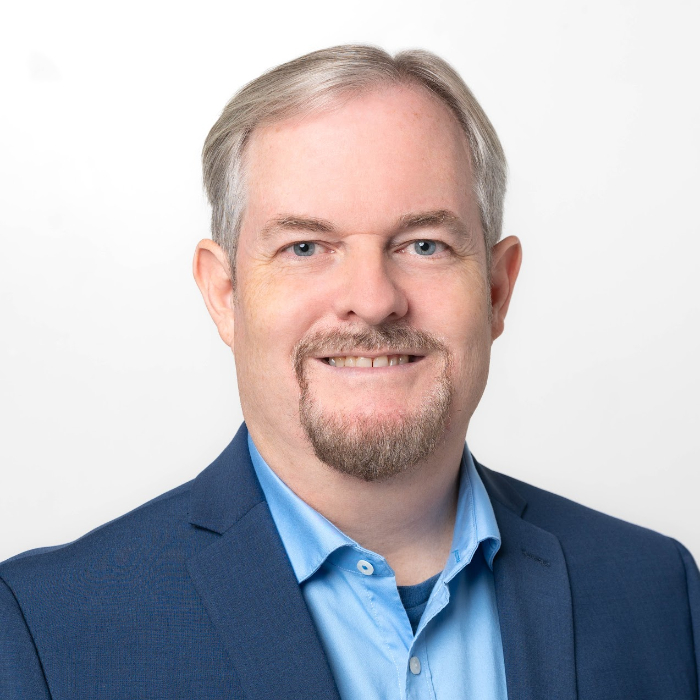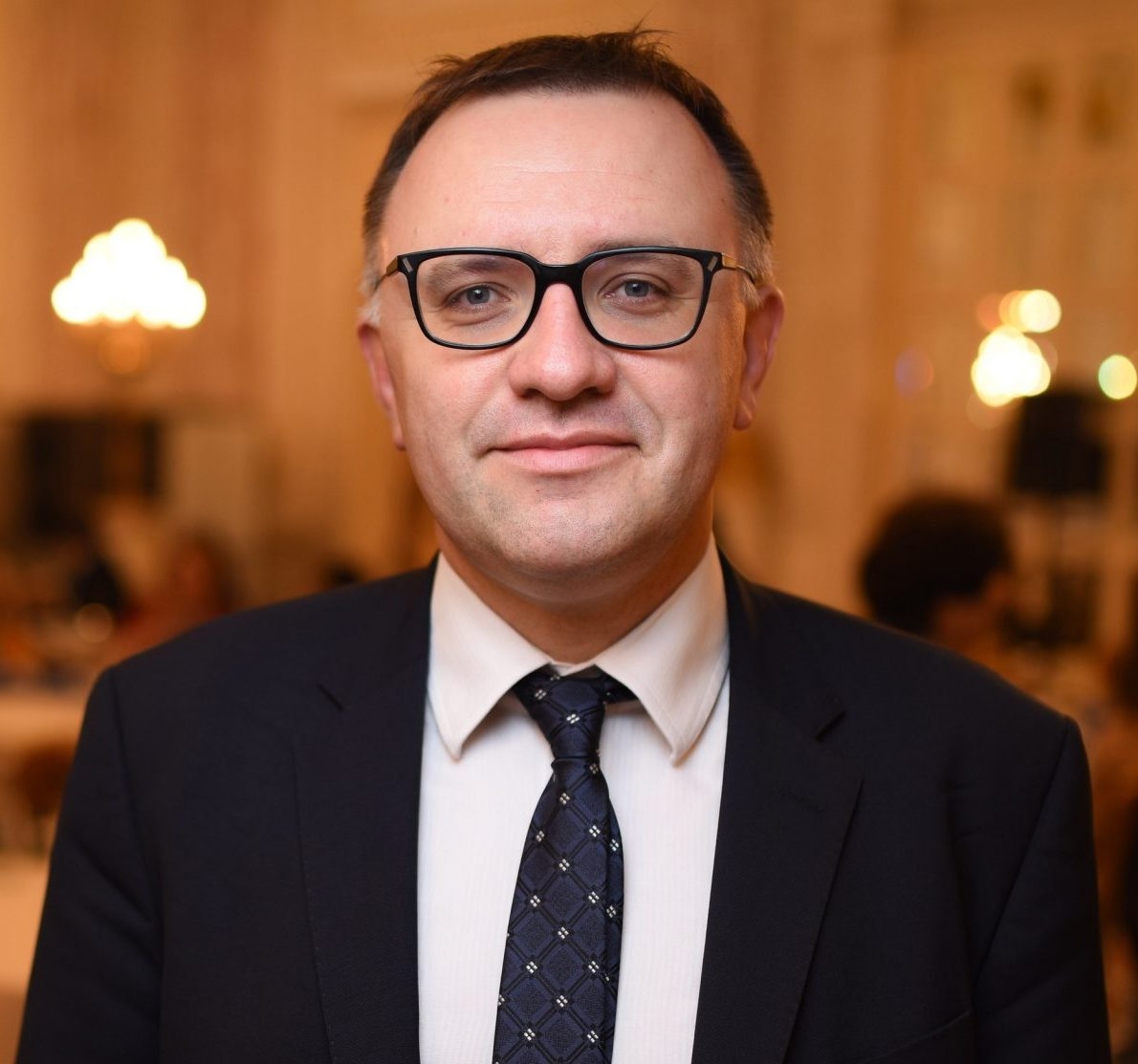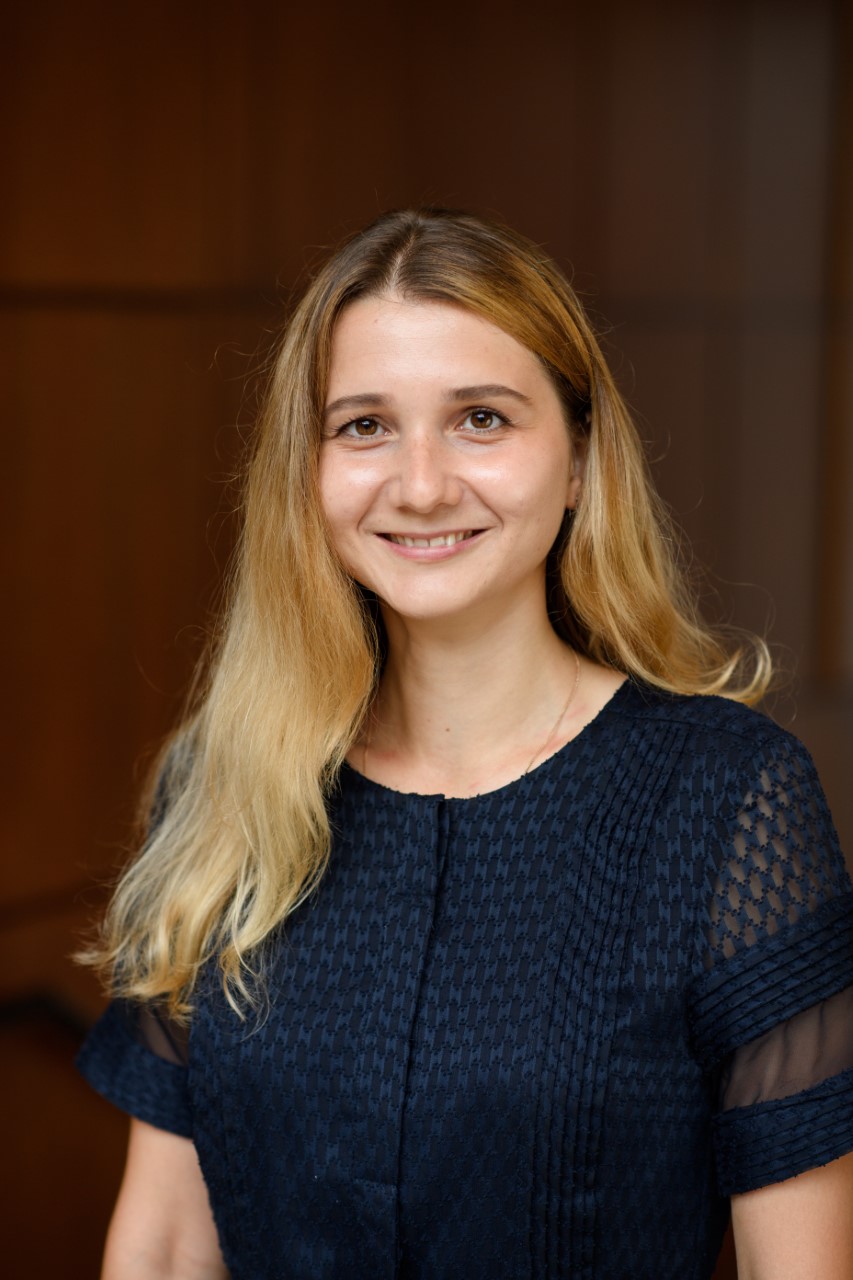
Cyber security and resilience: Lessons from Ukraine
Colloquium on Cybersecurity/Cyberlaw - Sponsored by the Orrick Fund
Over the past few years cyberspace has changed the way we live, work and communicate. It has become critical to our future prosperity, security and accelerating digital transformation. Cyber threats and attacks now target not only government agencies, but industries such as media, IT/communication, energy, transportation, healthcare, education, organizations of all sizes and individuals. Hostile countries employ cyberspace to gain advantage through various campaigns that include improving intelligence collection, deploying destructive attacks against victims’ networks, and leveraging the full spectrum of information operations to shape public perception on various issues. Given the borderless nature of cyber threats, it is important to consider how to effectively address increasing cybersecurity challenges and build robust cyber resilience.
In a talk entitled “Cyber security and resilience: Lessons from Ukraine”, speakers will discuss how a combination of cybersecurity measures and respective procurement reforms can be used to make progress against significant systematic vulnerabilities. More specifically, Dr. Robert Peacock will focus on the cybersecurity measures Ukraine has adopted since the infamous NotPetya attack in 2017, including the overlooked adoption of the independent e-auction tool ProZorro for all public procurement. Though not a single national cybersecurity strategy in North America, Europe or the Global South addresses corruption, Ukraine demonstrates the critical role anti-corruption initiatives can have in mitigating procurement cultures favoring pirated or unsupported network software. Dr. Pavlo Pushkar will offer perspectives on the Council of Europe’s standards and measures that shape the cybersecurity landscape, enhance national capacities, and facilitate international cooperation. His presentation will emphasize the importance of an effective criminal justice response that aligns with the Budapest Convention on Cybercrime and its protocols, while ensuring the protection of human rights, adherence to the rule of law, and data privacy. Q&A to follow. The event will be moderated by BKC Fellow Marta Basystiuk.
Our events are now open to the public. Please arrive by 12PM ET so we can let you into the building if you do not hold an active Harvard ID. Someone with a BKC name badge will greet you at the main entrance! Due to building restrictions and security, we will be unable to let attendees in past 12:45PM ET.
Speakers
 Dr. Robert Peacock is DAI Global’s Senior Technical Advisor in Cybersecurity to USAID’s Europe and Eurasia Bureau’s Critical Infrastructure Digitalization and Resilience program to support cybersecurity across 12 countries in Central and Eastern Europe. He teaches in the Department of Criminology and Criminal Justice and the Global Affairs program at Florida International University. Dr. Peacock spent most of the last 15 years managing overseas training and assistance programs funded by the US Department of State, Department of Justice, and Department of Homeland Security. In particular, he developed and led the Department of Justice’s patrol police program that selected, trained, and mentored an entirely new patrol department of 18,000 officers in Ukraine. Currently pursuing an M.S. in Cybersecurity Policy and Governance at Boston College, Dr. Peacock received an M.B.A. in Finance from Ohio University and a B.A. in Public Policy from the University of Michigan prior to completing his Ph.D. in Criminal Justice from Michigan State University.
Dr. Robert Peacock is DAI Global’s Senior Technical Advisor in Cybersecurity to USAID’s Europe and Eurasia Bureau’s Critical Infrastructure Digitalization and Resilience program to support cybersecurity across 12 countries in Central and Eastern Europe. He teaches in the Department of Criminology and Criminal Justice and the Global Affairs program at Florida International University. Dr. Peacock spent most of the last 15 years managing overseas training and assistance programs funded by the US Department of State, Department of Justice, and Department of Homeland Security. In particular, he developed and led the Department of Justice’s patrol police program that selected, trained, and mentored an entirely new patrol department of 18,000 officers in Ukraine. Currently pursuing an M.S. in Cybersecurity Policy and Governance at Boston College, Dr. Peacock received an M.B.A. in Finance from Ohio University and a B.A. in Public Policy from the University of Michigan prior to completing his Ph.D. in Criminal Justice from Michigan State University.
 Dr. Pavlo Pushkar is a Head of Division at the Department for the Execution of Judgments of the European Court of Human Rights of the Directorate General of Human Rights and the Rule of Law of the Council of Europe. The Department’s mandate covers advice to the Committee of Ministers of the Council of Europe on its tasks of supervision over measures to be taken under the judgments of the European Court as well as advice to member states on measures that they intend to take or have taken to comply with the Strasbourg Court’s judgments. His work also covers response to and accountability for gross and serious human rights violations. Dr. Pushkar worked at the Registry of the European Court of Human Rights from 2002 to 2016 as a senior lawyer and a non-judicial rapporteur. Before joining the Council of Europe, he worked as an advocate in the areas of international litigation and arbitration and as a public servant at the Supreme Court of Ukraine. Dr. Pushkar holds a Ph.D. in criminal justice. He is a graduate of Kyiv Taras Shevchenko University Law Faculty (BA and MA in Laws, with honours); the Nottingham University School of Law (LLM in International Law); Queens Mary College University of London (International Arbitration).
Dr. Pavlo Pushkar is a Head of Division at the Department for the Execution of Judgments of the European Court of Human Rights of the Directorate General of Human Rights and the Rule of Law of the Council of Europe. The Department’s mandate covers advice to the Committee of Ministers of the Council of Europe on its tasks of supervision over measures to be taken under the judgments of the European Court as well as advice to member states on measures that they intend to take or have taken to comply with the Strasbourg Court’s judgments. His work also covers response to and accountability for gross and serious human rights violations. Dr. Pushkar worked at the Registry of the European Court of Human Rights from 2002 to 2016 as a senior lawyer and a non-judicial rapporteur. Before joining the Council of Europe, he worked as an advocate in the areas of international litigation and arbitration and as a public servant at the Supreme Court of Ukraine. Dr. Pushkar holds a Ph.D. in criminal justice. He is a graduate of Kyiv Taras Shevchenko University Law Faculty (BA and MA in Laws, with honours); the Nottingham University School of Law (LLM in International Law); Queens Mary College University of London (International Arbitration).
 Marta Basystiuk is a fellow at the Berkman Klein Center and a legal expert who has worked extensively to support judicial and public-sector reforms in Ukraine. Over the past years, Marta has supported various state institutions, civil society, and international organizations to improve the quality of governance, including through integration of technologies and digital tools. Prior to joining the Berkman Klein Center, Marta led the implementation of two Council of Europe projects aimed at improving effectiveness of Ukraine's justice system and strengthening its institutional capacities. She also worked on the establishment of the High Anti-Corruption Court in Ukraine and served a a Law and Procedures Advisor at the US Department of Justice’s ICITAP program, where she contributed to the set-up of the new police force in Ukraine. Marta holds an LLM degree from the University of Pennsylvania and Master of Laws in International Business Law from Central European University and Bachelor of Law from the National University of “Kyiv-Mohyla Academy”.
Marta Basystiuk is a fellow at the Berkman Klein Center and a legal expert who has worked extensively to support judicial and public-sector reforms in Ukraine. Over the past years, Marta has supported various state institutions, civil society, and international organizations to improve the quality of governance, including through integration of technologies and digital tools. Prior to joining the Berkman Klein Center, Marta led the implementation of two Council of Europe projects aimed at improving effectiveness of Ukraine's justice system and strengthening its institutional capacities. She also worked on the establishment of the High Anti-Corruption Court in Ukraine and served a a Law and Procedures Advisor at the US Department of Justice’s ICITAP program, where she contributed to the set-up of the new police force in Ukraine. Marta holds an LLM degree from the University of Pennsylvania and Master of Laws in International Business Law from Central European University and Bachelor of Law from the National University of “Kyiv-Mohyla Academy”.

